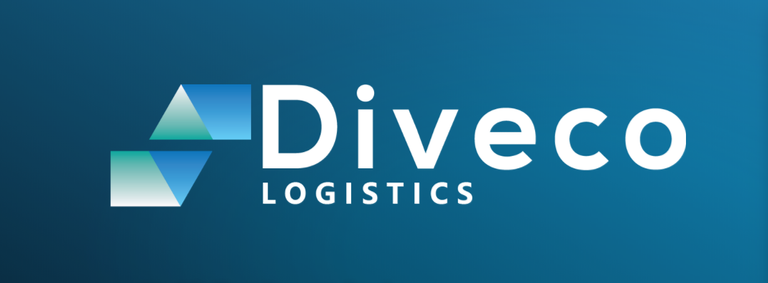
Diveco Logistics is a project of the latest generation logistics platform and ERP system operating in the cloud, fully based on integrated Blockchain technologies and the IoT (Internet of Things) concept in the Tangle registry.
The platform will be the cheapest, and at the same time the safest and most effective tool for business management. The use of Blockchain and Tangle registers in the ERP system will become a milestone in the development of resource management systems.
Diveco Logistics also plans to create several other products within the system. The combination of data from tachographs and GPS transmitters with Blockchain technology will effectively prevent attempts to falsify data and increase their transparency. Thanks to this solution, road safety will also increase, and entrepreneurs will gain the best quality tool for managing the work of drivers and fleet. What distinguishes the project is also the system of dividends to be introduced after the commercial launch of the system. Tokens will be the action of the company and depending on their number, the investor will be able to profit from it.
It is difficult to imagine management of modern enterprise without an IT system for maintaining its resources. ERP systems (Enterprise Resource Planning systems) are often used for these purposes. Their task is to provide decision-makers with timely and accurate data, allowing them to take and implement necessary business decisions, optimizing the interaction of people, materials, machines and cash. All of this is in order to effectively achieve the goals set by the company and to implement all planned tasks in an efficient manner. A typical ERP system (a system for planning enterprise resources), consists of co-operating applications or modules, which use one common database for the entire system. Thanks to this, data entered is available immediately in all modules. Individual modules included in the ERP system automatically integrate in one place all the information necessary for users regarding the enterprise’s operations at all levels and in most of the management areas. Typical ERP systems combine planning, supply, sales, marketing, customer relations, finance and personnel management information. Therefore, they allow the optimal use of resources and organization of processes in the specific industry. An extremely important feature of ERP systems is their flexibility and the ability to adapt to the specifics of a given company.
ERP systems are derived directly from MRP II (Manufacturing Resource Planning) systems, which are information systems for planning production resources. ERP system modules must include: storage, inventory management, sales, tracking of deliveries, procurement, customer relationship management, accounting, finance, human resources management, including staff and wages, as well as transport management, controlling and project management (in addition to planning, balancing and production scheduling, as in classic MRP II systems). In other words, the ERP system supports the implementation of the full economic process from planning sales to receiving payment. Of course, an ERP system implemented in a given company does not have to contain all of the above mentioned modules. How it appears in a particular enterprise depends only on the specifics of a given company and on what goals were assumed during the ERP system implementation process. What is important is an adaptation to the needs of a given company, made possible due to the fact that individual modules of the ERP system are always mutually independent of each other and can work without another module’s presence (with the exception of the basic module). An important feature of a modern ERP system is that they allow the setting of specific access rights for particular employees, while maintaining a standard user interface, thus enabling users to perform planning processes using different methods and introducing changes (corrections) in the planned processes, which are resulting from changes in the planned processes, which are resulting from changes in the external conditions (eg sudden fluctuations in prices of natural resources).
The ERP system will use existing solutions available in other systems existing on the market. What distinguishes it and makes it competitive is the application of new technologies at the base of the system. Diveco Logistics will be a system divided into three integrated sectors using Blockchain and Tangle.
Website: https://diveco.net
Twitter: https://twitter.com/DivecoLogistics
Facebook: https://www.facebook.com/divecologistics
Telegram: https://t.me/divecologistics
Whitepaper: https://diveco.net/DIVECO_WHITEPAPER_EN.pdf
welcome to steemit,
Get to know how to earn more on your posts and get more followers.
Make new friends and interact.
We can share our thoughts.
In the steemit school, we have ultimate contest challenges where you get to win and make investments.
You need support from a community to grow and earn easily on steemit.
I recommend one for you.
Meet over 3k + steemians.
Steemit is a business, we will teach you how to succeed
join the steemit school on discord https://discord.gg/pqWrzBn
Congratulations @ralphfriedman! You have completed some achievement on Steemit and have been rewarded with new badge(s) :
Click on any badge to view your own Board of Honor on SteemitBoard.
To support your work, I also upvoted your post!
For more information about SteemitBoard, click here
If you no longer want to receive notifications, reply to this comment with the word
STOP